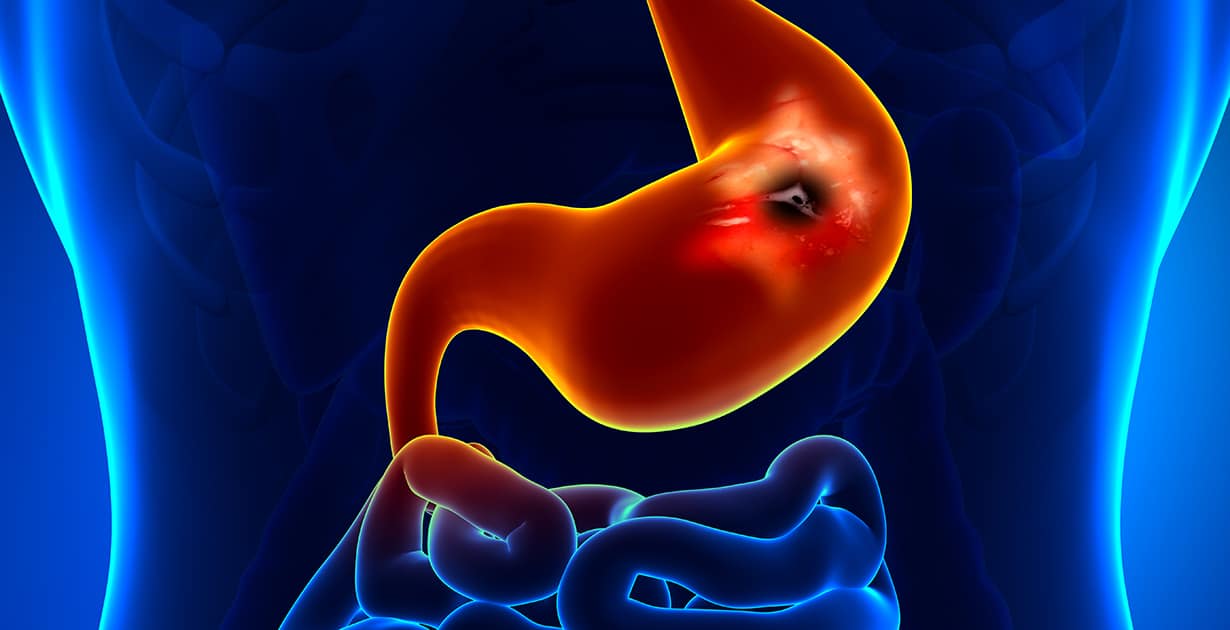It is by now, a well-established fact that Fucoidan is effective on cancer. However, it is suitable for other diseases, such as a peptic ulcer. According to the studies by Medscape, in the United States, peptic ulcer disease affects approximately 4.6 million people annually, with an estimated 10% of the US population having evidence of a duodenal ulcer. So, in this article, I want to share few facts about ulcer and fucoidan benefits.
The mucosa is always covered by a layer of thick mucus that is secreted by tall columnar epithelial cells. Gastric mucus is a glycoprotein designed to serve two purposes: 1) The lubrication of food masses to facilitate movement within the stomach. 2) Forming a protective layer over the lining epithelium stomach cavity. The protective layer is a defense mechanism the stomach has against being digested by its protein-lysine enzyme. The secretion of bicarbonate facilitates it into the surface layer from the underlying mucosa. When these balances are collapsed, the gastric mucosa is damaged, thus creating ulcers and displaying symptoms such as pain and bleeding. On the other hand, fucoidan, a sulfated polysaccharide found in various brown seaweeds, is proven to have valuable pharmaceutical and potential biomedical activities. In this study, we investigated the effectiveness of fucoidan on ulcers on the used gastric ulcer mice.

The study, “Evaluation of fucoidan bioactivity as anti-gastric ulcers in mice” by Ellya Sinurat et al., extracted fucoidan powder from Sargassum duplucicatum, and was obtained 5.56% of fucoidan by decolorizing with hydrochloric acid water, removing alginic acid and the Cetylpyrimidinium chloride or ethanol precipitation.
Following, we investigated the effectiveness of fucoidan on the used aspirin to ulcer mice. Aspirin is one of the non-steroid anti-inflammatory drugs (NSAIDs); however, NSAIDs cause possible side effects such as ulcers and bleeding in the stomach and intestines can usually use for ulcer models.
In this study, mice were used as an animal model and divide to control and fucoidan groups. Fucoidan groups were given 100, 200, and 300 mg /kg of fucoidan. Control groups were given 0.5 % of carboxyl methylcellulose for 14 days and then were kept under fast for 48 hours. After that, the mice were given aspirin (400 mg)/kg body weight. And researchers were induced gastric mucosa disorders in mice. After that, we took each mouse’s stomach and evaluated the anti-ulcer effect of fucoidan by histopathology test. Figure – 1, Based on the figure of hepatology performance that aspirin without fucoidan. Figure – B, caused blood clots, which shows that ulcer gastric in stomach tissue. In a different version, Figure – A without aspirin and Figure – C given aspirin and fucoidan, does not see any blood clots. This shows that fucoidan can be used to prevent gastric ulcers.
These findings support the hypothesis that fucoidan effectively reduces the inflammatory cytokines release mediated gastric mucosal damage on a given sprain. As ulcer healing is a complex process involving various factors, this study is at a very fundamental stage to conclude its exact action. Still, the generation of a reactive metabolite can quickly produce mucosal damage. The ulcer prevention or healing by fucoidan was associated with an increase in the mucus layer in the gastric mucosa.

